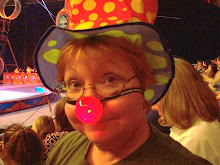Martha's Burden
I do not get excited about most western movies. If Jimmy Stewart or Henry Fonda isn’t in it,
I probably will not enjoy it. I chose to
watch Dead Man’s Burden (written and
directed by Jared Moshe) because Clare Bowen (Scarlett on ABC’s Nashville) is one of my favorite
actresses. I began with the attitude
that I enjoy Bowen’s work enough to tolerate a western. Little did I know that I would watch this
movie twice in one weekend.
Moshe’s western has all of the “shoot em up” and acts of
revenge you would expect from a western, but it is much more complex. It is not immediately evident that Bowen’s
character, Martha Kirkland, is the protagonist.
At first it seems like a typical conflict between “good guy” Wade
McCurry (played by Barlow Jacobs) and Heck Kirkland (played by David
Call). Moshe downplays the star role to emphasize
the insignificance of women who lived on the barren western front. He demonstrates the psychological desperation
of women doomed to this dirty, hungry, and barren life through Martha. The landscape itself screams of dirt and
oppression. Even when the film seems to
move a little too slowly, Moshe is demonstrating the psychological effect of
living in this environment.
We have seen many western heroines. Maureen O’Hara uses humor to portray an overbearing,
but loveable, wife opposite John Wayne in Andrew McLaglen’s McLintock. Katharine Hepburn plays a tough woman opposite
John Wayne in Stuart Millar’s Rooster
Cogburn. While these grand ladies
entertain us, we do not have a true sense of the typical life for women during
these times. Bowen’s character has a
different kind of strength – one born out of oppression. Her
character is believable. The film might
be titled Dead Man’s Burden, but the
burden is clearly upon Martha Kirkland.










